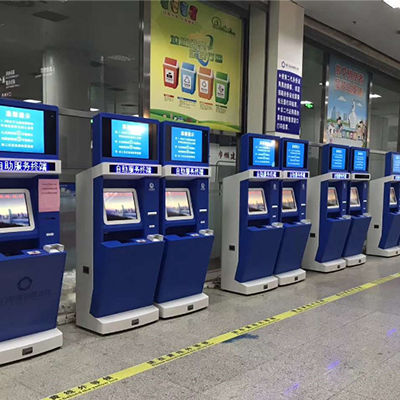The Transformative Role of Self-Service Terminals in Modern Society

The Transformative Role of Self-Service Terminals in Modern Society
Introduction
In our fast-paced digital era, self-service terminals have emerged as silent revolutionaries, quietly transforming how we access services across multiple sectors. From retail to transportation, healthcare to government services, these intelligent interfaces are redefining convenience and efficiency in public spaces worldwide.
1. Ubiquitous Presence Across Industries
Self-service kiosks have permeated nearly every aspect of modern life:
- Retail: Self-checkout systems now handle 35% of supermarket transactions globally
- Banking: ATMs and smart deposit machines process over 70% of routine transactions
- Transportation: Automated ticket vending machines serve 89% of metro system passengers
- Healthcare: Self-service check-in kiosks reduce hospital wait times by 40%
2. Social Benefits and Impacts
These technological solutions deliver measurable societal advantages:
Operational Efficiency
- Reduce service processing time by 50-75% across various sectors
- Enable 24/7 service availability without staffing constraints
- Handle 3-5 times more transactions per hour than human-operated counters
Economic Advantages
- Lower operational costs by 30-45% for service providers
- Create new maintenance and tech support job categories
- Generate valuable consumer behavior data for service optimization
3. Enhancing User Experience
Modern terminals incorporate sophisticated features that improve accessibility:
- Multilingual interfaces supporting 8-12 languages
- Voice-assisted navigation for visually impaired users
- Intuitive touchscreen designs with 95% first-time usability success rates
- Mobile integration allowing pre-service preparation via smartphones
4. Pandemic-Era Importance
COVID-19 accelerated adoption due to:
- 92% reduction in physical contact compared to staffed counters
- Ability to implement social distancing protocols
- Contactless payment options preferred by 78% of consumers
5. Emerging Innovations
Next-generation terminals are incorporating:
- Biometric authentication (facial recognition, palm-vein scanning)
- AI-powered predictive service suggestions
- Augmented reality interfaces for complex transactions
- Blockchain-based secure document processing
6. Challenges and Considerations
While beneficial, self-service technology presents:
- The need for ongoing cybersecurity investments
- Accessibility requirements for elderly and technologically-challenged users
- Balanced implementation to maintain human service options
Conclusion
Self-service terminals have evolved from simple transactional tools to sophisticated service portals that enhance efficiency, reduce costs, and improve accessibility. As artificial intelligence and IoT technologies advance, these platforms will increasingly serve as primary interfaces between institutions and the public, fundamentally reshaping our service economy while creating more connected, efficient communities. Their continued development promises to further democratize access to essential services while optimizing operational workflows across industries.







